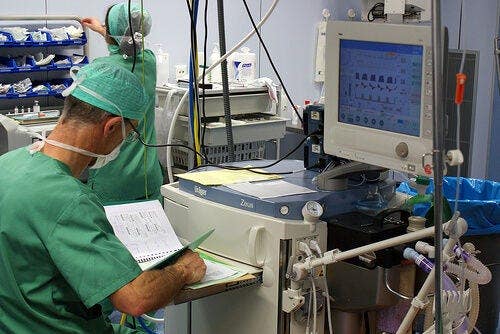Medical Documenting: 5 Important Things to Remember

Write Clearly and Legibly
According to a report in Medscape, the modern health care system puts increasing demands on nurses’ time. As they head from one patient’s room to another, they must ensure they write down all pertinent information for each patient. For example, they must document medications they administer, changes to bandages or dressings, and patient complaints of pain and discomfort. Simply writing down the information isn’t enough, though. It also has to be legible, too, if it’s to have any practical value to other nurses and doctors. Unfortunately, when nurses are rushed, writing legibly may be challenging.
Critically evaluate your handwriting. If it’s difficult to read, consider printing. The Nurses Service Organization, which provides liability insurance coverage to nurses, recommends signing your first and last name by everything you write so others can find you and ask questions if they can’t read something. Finally, only use abbreviations that have been approved by your employer. Most hospitals and health care groups allow the use of common medical abbreviations such as PRN for “as needed.” To confirm the approved list of abbreviations, talk to your nursing supervisor.
Handle Records with Care
According to the U.S. Department of Health and Human Services, HIPAA privacy rules are set at the federal level to ensure patient privacy. With medical documentation, the rules require nurses to store medical records out of public view. That means you have to be careful where you place a patient’s record while you’re updating it. Documenting medical information at the busy nurses’ station is not ideal for protecting patient privacy. You might want to complete the documentation in the patient’s room so you can close the folder and keep the information covered.
In addition to being concerned about privacy, nurses have to preserve the physical integrity of medical documentation. Keep papers out of direct sunlight, off contaminated bedclothes, and away from liquids. Hospitals and clinics can be messy places, and nurses play a crucial role in making sure environmental factors don’t compromise documentation.
Document All Your Actions
Nurses have an obligation to record everything they do during their shift and failing to keep thorough records could result in a patient receiving subpar care. Consider this example: A nurse changes the dressing on a patient’s surgical site because it’s become soaked in fluids. If the nurse doesn’t write down this action, the next nurse may not think it’s unusual that the dressing is soaked with fluid again only a couple of hours later. In other words, a lack of proper documentation may make it difficult for health care providers to see patterns that can signal life-threatening problems.
Just as it’s important to record your actions, it’s critical to write down all food, liquid, and medication the patient has on your shift. The doctors and nurses who care for the patient after your shift must know all the details so they can avoid administering medications that could interact adversely with medications you gave the patient. As you record all pertinent information from your shift, be sure to include the date and time using a 24-hour clock system to avoid confusion.
Record Only Objective Facts
Even though it might be tempting for nurses to insert their opinion into a medical record, they should only report what they observe. A patient’s chart should cover what both the patient and medical staff said and did. To ensure accuracy, the chart should never contain information the nurse did not directly observe without attributing the source of the information. For example, the nurse might write down that the patient’s husband said the patient slept for an hour; the nurse can’t definitively say how long the patient slept.
It’s also important for nurses to be observant and ensure that every detail is captured. This information provides the nurses on the next shift with the information they need to provide appropriate care. Look for things such as trays of uneaten food, cups of untouched water, and signs the patient hasn’t moved during your shift. All of these observations are critical to notate.
The Nurse Service Organization emphasizes the importance for nurses to focus on accuracy. By capturing the precise medication dosages, amounts of fluid passed, and other details, you will help the nurses and doctors who treat the patient after you to better assess his or her condition. Accurate recordkeeping confirms that you did a procedure correctly or gave the right medication in the correct amount to the patient. If you get something wrong in the documentation, others may assume you actually made an error in working with the patient rather than a mere clerical mistake.
Capture Orders Correctly
According to the American Nurses Association, nurses who incorrectly record orders from doctors can be held liable for any complications or injuries that occur as a result of the error. Ideally, nurses should be familiar with the procedures, medications, and treatments the doctor is recommending. Familiarity allows nurses to recognize if something seems amiss in the orders they’ve captured on paper. Then, the nurses can follow up with the physician for clarification.
It’s equally important to analyze the orders another nurse captured. If something in the notes seems wrong, it’s your responsibility to discuss your concerns with the prescribing physician and notify your nurse supervisor. As gatekeepers, nurses are the last line of defense against patients receiving incorrect medication dosages.
Properly charting patient information is just one skill you can improve. If you have an associate’s degree in nursing, you can improve this skill and others by enrolling in a BSN to DNP program. Learn more about your options by visiting Maryville University online.